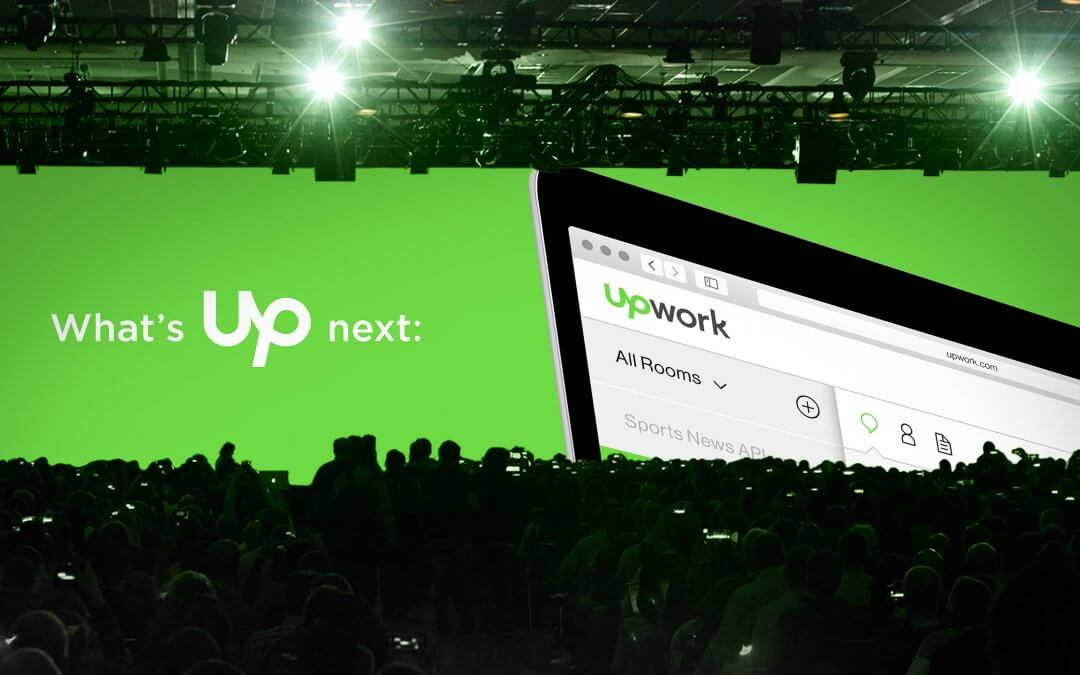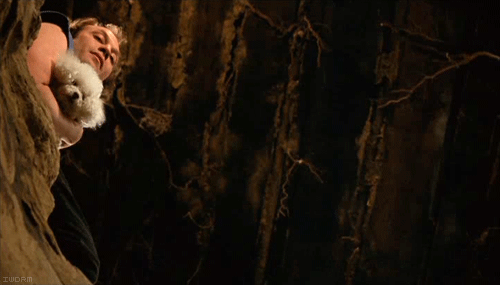
How to Land Almost Any Job on Upwork
For the past decade, I have consistently been one of the highest grossing freelance writers on Upwork (formerly Elance and oDesk), the largest freelance job site around. In four of those years, I was the #1 individual in the world for the writing category, and I can only describe those times as a true snowball effect. I literally went from being slow in the spring of 2004 to having more work than I could ever possibly handle by that summer. Then in 2005, I had an entire team of writers working with me and countless invitations bombarding my inbox every single day.
In fact, when Elance was transforming over to Upwork, I was the very first freelancer on the entire paltform that they reached out to for feedback. It may sound silly but I’ve always worn that interaction like a badge of honor. I can tell you firsthand that the talented people behind the scenes at Upwork really care about you and their clients.
Of course, I’m not saying all of that to brag- I just want to illustrate that I am incredibly good at landing jobs on Upwork. With some luck, I’ll teach you here today how to replicate my success. Fair warning though- this isn’t a “get rich quick” or “scam the system” type of guide. I can teach you how to land virtually any freelance job, but there’s also going to be a lot of work involved as well.
So where do you start? Let’s find out…
If you wanted to be a lumberjack, then you’d have chainsaws, axes, blade sharpeners, gas, oil and all the other tools of the trade, right?
So if you want to be a freelance superstar on Upwork, you need to acquire those same types of tools. For instance, take a quick tour of my website- look at the branding, content and calls to action on each page. This appears to be a huge company, right? But it’s not, it’s just me and a couple of part time folks that help out. So whenever someone asks for an example of a site I’ve worked on, you’d better believe that this is the very first place I send them.
Think about that- my best portfolio piece is my own business. Can you see how that would make sense to a client?
Now, that doesn’t mean that you need an expensive looking website to impress people. But you shoud have at least a full portfolio laid out somewhere online- even if it’s on Google+. You need one place where a client can take a look and think, “Oh wow, this person is the real deal.” This will be your #1 sales tool throughout your career BY A LONGSHOT.
Tools of the Freelance Trade
Likewise, you want to have the other tools of the trade as well. That means getting certified by Google for development, AdWords or analytics. Then head over to HubSpot and get certified in Inbound Marketing, design, content marketing, or wherever your expertise happens to be. Moz also offers an SEO course on Udemy so you can get up to speed there- these are steps that most amateurs won’t bother with.
Then there are the skills tests on Upwork itself- clients actually pay close attention to these kinds of things.
Finally, there is your Upwork portfolio; it should be 100% completed with awesome content. That means linking to your previous work, providing full descriptions, sharing why you’re the perfect candidate for the job and what to expect when working with you. My Upwork profile still earns me at least 1 or 2 invites a week from people who find it in Google search engines.
One other thing you need to have in your arsenal- if you send clients SEO/analytics reports, wireframes, work summaries or anything else outside of the regular chat, you need to create branded documents with your logo and business/portfolio info in the headers and footers.
If you don’t have a logo yet, then design one on Canva for free. It’s the most no-nonsense place I’ve found.
When a client posts a job on Upwork, Freelancer, iWriter or any freelance paltform, it’s almost like a fishing expedition. I can’t tell you how many times I’ve posted an ad to hire an extra writer and every sinlge application was just boring. Here’s what 99% of all freelancer place in a proposal-
- Their name and how long they’ve been in the biz
- A few generic sentences about how they’re an expert
- The price they’d charge for the project
- End with something like, “I hope that we can talk soon!”
As a client, when you see 15-20 proposals that look exactly the same, it’s almost impossible to distinguish one applicant from another. And when that happens, the client either decides to not hire anyone or they pick either the highest or the lowest possible bid…depending whether they’re searching for quality or value. Most of the time though, they just walk away because they’re not impressed.
This also goes back to your portfolios as well (on Upwork and on another website). When all the proposals stink, then the client will sometimes browse through the freelancer’s job history to see what others have said. And if you’re not shining in that aspect, then it’s almost impossible for you to ever get hired for anytihng…except crappy jobs for low pay from crappy clients.
Writing a Killer Proposal
Here’s how I write a proposal on Upwork-
1) I look through the client’s job history, click on a past job, and find the client’s username (You can’t see it in the current job page until after you apply- this is a quick little workarond.). Then I Google that username to try to get a clue of who they are, what they do, etc.
2) If I can find out what the business is, then I’ll visit their website and look at it critically. What could they do better to impress customers? Where are they losing out on a great call to action? Are there awesome graphics, videos, and other stuff to make the page engaging? How easy is their navigation to use? I look at all of that stuff.
3) From there, I use the business website to figure out who posted the ad. Then I’ll look them up on Facebook and LinkedIn to see if we have anything in common. If not, is there something there I can use as an ice-breaker?
4) Finally, I’ll make their job requirements almost an afterthought in the conversation by focusing on what the client really needs. NOTE- that’s way different from what they want to hear!
What does that mean?
Let’s say that a client is looking to hire someone to create an email marketing campaign or sales funnel. In my proposal, I’ll actually tell them NOT TO hire anyone because their website is not optimized for people. Why would you let a client spend a thousand bucks to get people on their website when it’s not going to help them sell? You always optimize the website and the calls to action first.
By not actually bidding on the project, I accomplished something that 99% of all freelancers goof up- I proved my value without ever having to brag. I also showed that I was loyal to them and not the money. Clients will reply almost 100% of the time in those situations and they’ll ask me to tune up their website…then they’ll have me do the email marketing campaign afterwards.
Learning to Break the Ice
If that’s not an option, then I’ll use one of those ice breakers to show that I did my homework. For instance, I sent a proposal the other week that started with, “I see that you just got back from vacationing in Orlando…did you happen to go to Disney Wolrd?” Of course, I know they did because there was about 50 pictures with their kids and Minnie Mouse. That’s how you break the ice though…you find something to start a conversation with.
The lesson here is to make sure that you’re completely different from every other applicant by paying attention to the client’s needs, writing a personalized proposal and tying in anything that the average person won’t bother to look up. You’ll be amazed at how many doors will open for you quickly.
Want to hear about how I landed my first Fortune 500 client on Upwork? I absoluely love this story.
About seven years ago, I hopped on Elance late one night just to see if anyone on the West Coast was posting a project before bed. I’ve learned that if you can get your proposal in before anyone else and it impresses, then you have a decent chance of landing the job on the spot without any competition.
So I would check the job feeds fairly often back then- usually 3-5 times a day minimum.
Anyway, I see a project for writing a post card for an upcoming charity event with a budget of fifty bucks. And I’m thinking a post card? That’s almost not even a job. I have a policy of never charging charities anything if I can help it but at the time, the minimum bid on Elance was $25 if you didn’t want to get penalized. So I bid $25 for a series of five postcards, with visual cues for the front and the copy for the other side.
Now, the client didn’t ask for any of that…she only wanted the writing. But it was for a good cause so I tried my best to go way above and beyond in any way that I could. Even so, I spent maybe 30 minutes total on this project before sending it back to the client. She was absolutely thrilled.
About a week later, the same client emails me and says, “Have you ever written a video script? I work for <massive, huge company> and I need five scripts for one of our major clients- I could pay you up to $1,000 if you could complete them within the next 3-4 days.”
Naturally I was blown away- I had no idea who I had volunteered for. But it made sense; highly sucessful people are more likely to be involved with big charities. And I happened to get on this person’s good side over a simple $25 project.
Over the last 7 years, I have billed this one client in excess of a half million dollars. She’s also referred me to two others on the Upwork platform that add up to an additional $175,000 in freelance work.
The Art of Landing Small Projects
Personally, I love bidding on small projects that can show off my abilities because I know for a fact that the client will come right back to me the next time they need something. So while others only bid on the jobs with $500 or $1,000+ budgets, I don’t pay any attention to the numbers part of the equation. I just look for users with a history of projects and good feedback- if they have that, then I’ll spend two minutes researching them and try to get them on board.
Here’s the thing though- if I had delivered $25 worth of postcard copy, then that client may have never reached out to me again. She loved me because I went above and beyond for a complete stranger…that’s how you prove your worth.
So remember this- there’s no such thing as a lousy job on Upwork. If you earn great feedback and get the chance for more work later on, then it’s a win/win situation. And you can always decline recurring projects down the road if the money is not adding up. That feedback and making a great impression is literally priceless though- I initially built my Elance profile $25 and $50 bucks at a time.
The Joys of Scam Artists
In fact, I remember an early job- maybe the worst project I ever accepted on Elance. It was for a “short eBook” on the driving laws in Australia, and the client said that he would be fully involved with the project and do all the research. The proposal said to write around 15 pages and he was offering $300. So even though the money was lousy, I said what the heck.
Only, the client completely lied- he didn’t share any research at all. In fact, he didn’t do anything but make additional demands. He changed the page count to 25 pages and then 35…all while promising me a hefty bonus at the end. The end product was 42 pages AND I did all the formatting for it.
But all of a sudden, the client wouldn’t respond. I could see that he was logging into Elance, yet he wouldn’t reply, release the payment or talk about that huge bonus he promised. So I’m contacting customer support and screaming bloody murder…this crook ripped me off! They did initially get the $300 released to me though since the client was non-responsive.
Nightmare job, right?
Of course it was. Yet, I received an invite for an eBook job about seven months later from a really, really good client. This person happened to like my profile and then he noticed that project, which convinced him to reach out. So even bad projects pay off if you deliver quality work.
I’ve saved the best (or possibly the worst) for last since this is something a lot of people won’t want to hear. To succeed on Upwork, you only have to do one thing well- impress clients.
Throughout this article I’ve given you almost everything that you need to shoot up to the top of the ranks…there’s only one little thing missing. Your work ethic. Are you willing to go above and beyond for evey client? Have you created an awesome portfolio, stationery and all the other tools of the trade? Can you guarantee that you’ll never miss a deadline? Will you research clients inside and out before applying (with a custom proposal)?
These are all the things that the best of the best do on a daily basis.
Over the years, I have literally trained hundreds of writers, digital marketers, SEO professionals and copywriters at all stages of their career. And if there was one thing that the vast majority were lacking, it would have to be an amazing work ethic to consistently go above and beyond. They wanted to put out minimal effort and receive great pay…that’s just not how the freelance world works.
If you’re really committed to your craft though and you’re ready to take the freelancing world by storm, then Upwork is certainly a place that you can do that. The best advice I can give you is to be yourself, work hard and always overdeliver for your clients. Focus on building actual relationships as well- that’s what clients are ultimately looking for. The last thing they want to do is scan through dozens of postings every week, they’d rather just hire that last person who did such a great job.
So become that person who always leaves clients with a smile on their face. Then the frelance world will literally be your oyster.
By the way, I LOVE netowkring and comparing notes! If you’ve had a different experience on Upwork or see anything that I’ve missed, feel free to share it in the comments section below.












